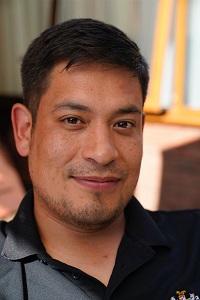
In his second blog for Open Justice Liam Chin writes about his participation in the Freedom Law Clinic project. Liam is an Open Universiity Alumni, a Gray's Inn Wilfred Watson Scholar and a Gray's Inn Residential Scholar.
Little more than a year ago, I was awash with the mixed feelings of trepidation, excitement, and uncertainty. I was about to embark on my journey with the Freedom Law Clinic as part of my Justice in Action module.
The trepidation was founded on the fact that I had not studied for a long time, sixteen years to be exact. Would I possess the skills I needed to succeed on this project?
I was uncertain about what I could expect. Did somebody’s freedom rely on my attention to detail? Was I in danger of ruining a person’s future because of a personal mistake or oversight?
However, the overriding feeling was that of excitement, as I’m sure it is for many embarking on the same journey. Many of us study law with the dream of becoming lawyers. Finally, after what seemed an intense and vast amount of reading and learning, we were going to be putting our knowledge to the test working on real cases.
Although the initial feeling of diffidence was not unwarranted, it was soon put to rest. It became quite clear very early on that the support available throughout the project was great.
There was no end of people to turn to for help and support. I developed a strong relationship with my tutor whose support was unwavering. The caseworkers from the Freedom Law Clinic were always really helpful and offered guidance whenever it was required. Most importantly, I had my group of peers that I was placed with, a team of people going through the same experience with whom we could share the journey, workload, and trials and tribulations. Therefore, I was able to really relax and enjoy the process.
So, what is the main objective of working on the Freedom Law Clinic? For many, the objective would be to successfully complete their case before the end of the year and produce a submission which has a chance of having their client’s conviction deemed unsafe. Perhaps, it is simply to pass the module?
When I look back to when I started, I can completely sympathise with the approach I have described above. However, having now completed my project I can say with great passion that my initial intent became the pebble that started the ripple across a vast lake.
I don’t think I would be chastised for telling you that this is a classic tale of never judge a book by its cover. It would be very easy to look at one positive outcome, for one case, for one defendant and see it as a success if that was your objective. But what about all the other miscarriages of justice? What about all the other people sitting in prison with potentially unsafe convictions? Who do people turn to when they know they are wrongly convicted but cannot afford legal representation to fight that conviction?
You may not be able to relate at this stage, but the Freedom Law Clinic completely changed my view on what a lawyer is. It developed my reason for being a lawyer. What was once a desire to complete a task for a university module, has developed into a lifelong ambition to promote access to justice and address social inequality. Moreover, it has promoted the rule of law from a seemingly minor topic, studied in the first year of university, to the forefront of my mind in everything I do.
I know, I know; it is all very well having the ambition, but how do you go about implementing it? Fortunately, the Freedom Law Clinic teaches you many of the skills necessary for becoming a successful lawyer, and without you really knowing you are learning them.
A good example would be teamwork, which believe me is not always easy, especially when you feel you are picking up the slack of others. The reality is that this is a true representation of real life and sooner you learn it, the more adaptable you can become in your career.
For me, a key skill I learned was how to present a legal argument orally. It was my job to present the final submission to Freedom Law Clinic, initially a nerve-wracking experience, but an opportunity which stood me in such good stead for my future as a barrister.
In fact, the skills I learned are endless: practical legal research; working under pressure; time management; drive and determination; confidentiality; confidence. They are truly endless.
To conclude, the Freedom Law Clinic gave me so much more than I had ever imagined. It gave me a reason, it gave me the skills to implement my vision, and it taught me that I want to be that kind, compassionate barrister that addresses the issues we are all aware of but have never felt able to.
So here is my parting advice to you. Go into the project with an open mind. Embrace every moment because everything is a lesson, and remember, while you are searching for that piece of legislation or that damning piece of case law….you might just find, yourself.
